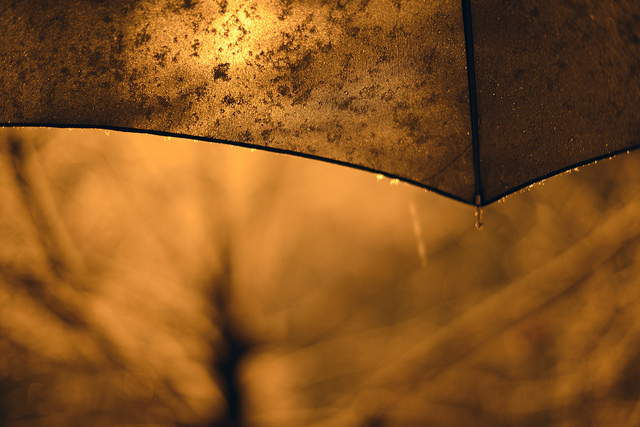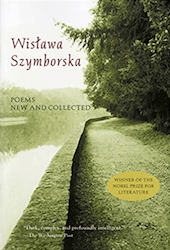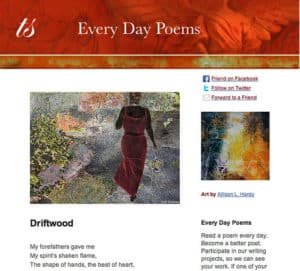Wisława Szymborska’s A Speech at the Lost and Found
The email I sent to a biology teacher to inquire about a line in a poem got lost. Of course it did. And why wouldn’t it?
The poem, “A Speech at the Lost-and-Found” by Wisława Szymborska, seems to speak of living creatures in mid-evolution, unable to recall “where I left my claws, ” an aging earth acknowledging the islands that are “lost at sea, ” a universe who “let several stars go out for good, they can’t be traced.” It’s only fitting that an email to a biologist about such a poem would go missing, sent summarily to spam because the name was not recognized at first glance. (And on second, who would be asking a scientist about a poem?)
A Speech at the Lost-and-Found
I lost a few goddesses while moving south to north,
and also some gods while moving east to west.
I let several stars go out for good, they can’t be traced.
An island or two sank on me, they’re lost at sea.
I’m not even sure exactly where I left my claws,
who’s got my fur coat, who’s living in my shell.
My siblings died the day I left for dry land
and only one small bone recalls that anniversary in me.
I’ve shed my skin, squandered vertebrae and legs,
taken leave of my senses time and again.
I’ve long since closed my third eye to all that,
washed my fins of it and shrugged my branches.
Gone, lost, scattered to the four winds. It still surprises me
how little now remains, one first person sing, temporarily
declined in human form, just now making such a fuss
about a blue umbrella left yesterday on a bus.
—Wisława Szymborska
“A Speech at the Lost-and-Found” is the sort of poem that leaves me perpetually fascinated, even after a dozen readings unable to put my finger on the thing that most intrigues me. In part, it is the shifting nature of the speaker—at times, it seems to be the whole universe. At others, a single creature at stages along the circuitous route from invertebrate to homo sapien, “squandering” vertebra and legs along the way. Rather than grappling to understand the whole meaning of it, I was happy to take the whole sense of it, if only I could know what was the “one small bone” that remained. Knowing this detail actually doesn’t answer the larger question for me, but gives me a thing to hang onto. (From my consultation with the biology teacher, it appears that we’re hanging onto the tail.)
When contemplating infinity, it’s helpful to have a small thing that can fit in our hand. In the case of a poem, it could be something as simple as the tailbone. In the case of the universe, it could be the curved handle of a blue umbrella.
__________________
I’m reading poems by Polish poet Wisława Szymborska every day in April as part of our National Poetry Month Poetry Dare, and writing my own poems in response. I’ve read little, if any, of her work before, and that’s really the point of the dare: to spend time with a poet that is unfamiliar, and see what happens. Are you reading a particular poet each day? Maybe you are reading an eclectic mix you’ve put together, or the daily offerings of Every Day Poems. What do you find challenging about the daily practice or about your poet? What are you most enjoying? Share with us in the comments. And if you wrote about the dare on your blog, leave us a link.
Read about the National Poetry Month Poetry Dare
Browse more Wisława Szymborska
Photo by Angelo Amboldi. Creative Commons license via Flickr. Post by Will Willingham.
______________________
Dare yourself to read a poem, every day, starting today.
Buy a year of Every Day Poems, just $5.99
Read a poem a day, become a better poet. In April, we’re exploring the theme Cheese.
- Earth Song Poem Featured on The Slowdown!—Birds in Home Depot - February 7, 2023
- The Rapping in the Attic—Happy Holidays Fun Video! - December 21, 2022
- Video: Earth Song: A Nature Poems Experience—Enchanting! - December 6, 2022



Donna says
I had the same reaction to the identity of the speaker… as soon as I ‘had it’ it was gone like a wet bar of soap, pwtwwwrpt gone and moving along to a new possibility.